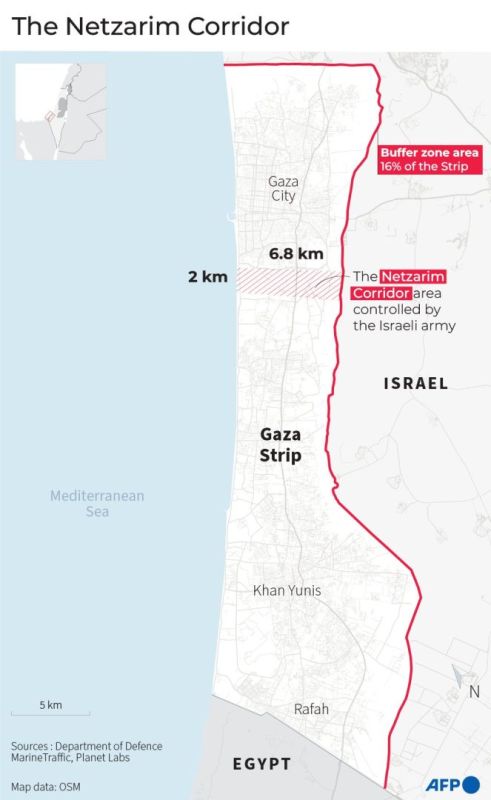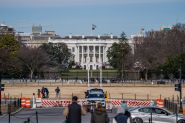- Home
- Middle East
- The New Netzarim Corridor Splits Gaza in Two

Since the outbreak of the Gaza war between Hamas and Israel on October 7, 2023, the Israeli military has undertaken a military project: the creation of a corridor stretching from the east to the west of the Gaza Strip. Known as the "Netzarim corridor," this passageway carries significant strategic implications for the Israeli state.
Nearly four months after the onset of the Gaza war on October 7, 2023, Israel initiated a significant construction project: the establishment of a militarized corridor spanning the Palestinian enclave from east to west, effectively dividing it into northern and southern regions. Construction work started last February.
The Netzarim corridor links southern Israel (near Nahal Oz) to the Mediterranean Sea on the eastern coast of the enclave, thereby isolating the northern part of the city of Gaza from the rest of the Strip. This corridor is nearly two kilometers wide and features a 6.8-kilometer road that can be crossed in seven minutes.

Goals and stakes
For Israel, the Netzarim corridor fulfills many crucial military and strategic objectives, centered around a key one: consolidating security control over Gaza.
On one hand, the corridor facilitates comprehensive monitoring of the area and the planning of operations.
The Israeli military has established three advanced operational bases within its confines, allowing for the execution of numerous targeted raids in the northern and central sectors of the Gaza Strip.
On the other hand, the deployment of checkpoints within the corridor aims to regulate the movement of Gazans northward within the enclave, coordinate the distribution of humanitarian aid to northern Gaza, and regulate traffic on key roads, which are essential for negotiations with Hamas.
Over recent months, the Israeli Nahal Brigade has been predominantly active within the Netzarim corridor. Towards the end of April, it was redeployed from the Gaza Strip to gear up, alongside other units, for upcoming operations, potentially including a ground incursion into Rafah.
Meanwhile, two reserve brigades have taken over its duties within the corridor.
Large-scale projects
To establish the Netzarim corridor, the Israeli army has conducted extensive demolitions. Numerous buildings and residences have been leveled to create a one-kilometer-wide buffer zone on either side of the corridor's central road.
Among the razed structures are the Turkish hospital, Al-Aqsa University campus, and entire villages such as al-Mughraqa and Johr al-Dik, located east of Gaza.
Simultaneously, as part of this military initiative, the Israeli army is working to expand the area declared off-limit to Palestinians along the Gaza border, aiming to create a one-kilometer-wide buffer zone. In the process, all structures within this perimeter are being demolished. Once completed, this zone would encompass approximately 16% of the total area of the Gaza Strip.
In this context, on February 8, Volker Türk, the United Nations High Commissioner for Human Rights, warned that Israel's extensive destruction of civilian infrastructure near the Gaza border constitutes a “serious violation” of the 1949 Geneva Convention, designed to protect civilian populations during times of conflict, and could potentially be deemed a war crime.
Furthermore, the corridor crosses through the former grounds of the Netzarim settlement, which was established south of Gaza in 1972 and was home to 400 residents. It was evacuated in 2005 as part of an Israeli withdrawal plan from Palestinian lands, approved back then by Ariel Sharon’s government. A first since Israel began its occupation of the West Bank and the Gaza Strip in 1967.
Between July and August 2005, 21 settlements were dismantled in Gaza and 4 in the West Bank, leading to the evacuation of over 8,000 Jewish residents from Gaza and approximately 300 from the northern West Bank.
Given this historical context, the two ongoing infrastructure projects – the control corridor and the buffer zone – raise questions about potential long-term Israeli presence in the post-war phase. Will it involve a recolonization of Gaza or a military presence? So far, Benjamin Netanyahu’s government has refrained from taking any position regarding these two options.
Read more



Comments